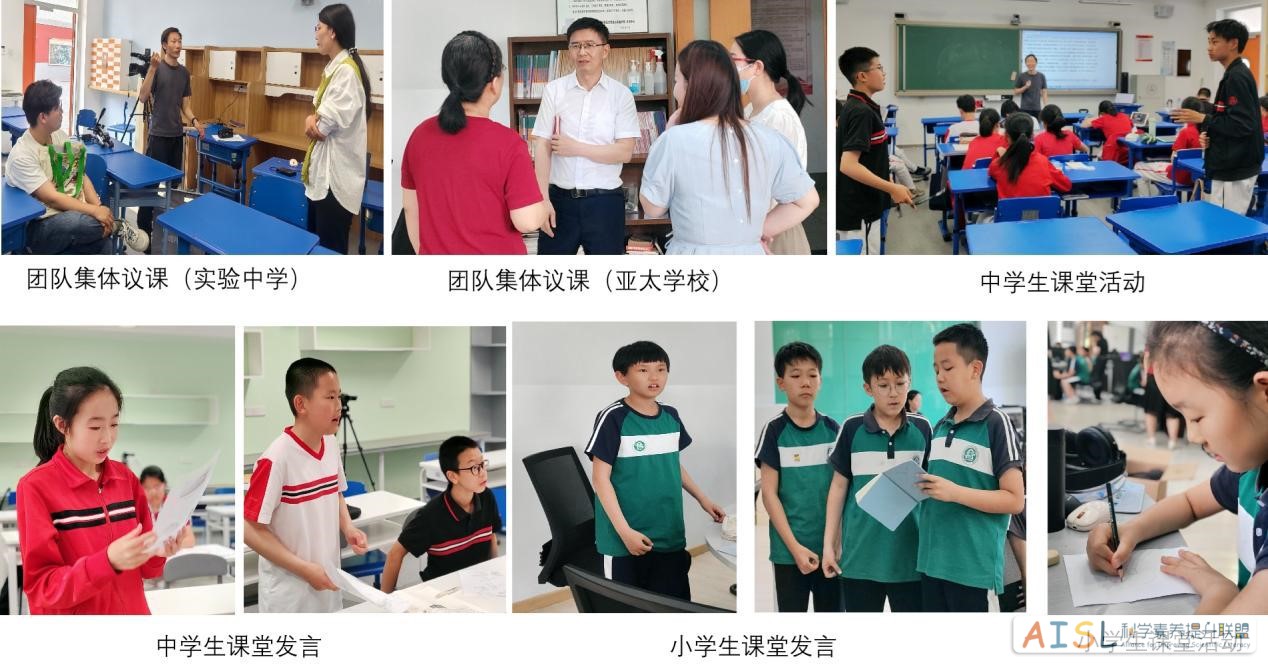2024年5月6日~5月19日,北京师范大学“社会性科学议题学习(SSI-L)”项目办在2所北京师范大学基础教育发展管理部“撷英计划”合作校,即北京师范大学附属实验中学、北京师范大学亚太实验学校,继续开展集体备课、课堂观察以及课后讨论等一系列教学研究活动。
这两周,以“全球变暖,谁来买单”为驱动性问题,两所合作学校教师带领学生讨论“为减缓气候变化,各国应当如何承担减排责任”。课前,教师下发文献资料;课中,教师将学生分为4组,分别代表不同的国家议员参加联合国会议。4组学生围绕上述问题,站在各自代表国家的立场上,整理自己的观点和理由,小组成员积极讨论后,形成草案;接着,教师引导代表学生发表自己的观点,其他小组学生可以点评,给出支持理由,或提出修缮意见;课堂讨论结束后,每组学生补充并完善小组草案,形成更具有说服力的议案。在后续课程中,教师们将展示制定联合国气候变化大会协约《联合国气候变化框架公约》的历程。这些活动可引导学生通过筛选信息、提取论据、形成主张,来形成解决复杂性现实问题的方案,训练学生学会多角度思考问题。

From May 6th to 19th, 2024, the Beijing Normal University Socio-Scientific Issues-based Learning (SSI-L) Project office continued to carry out a series of teaching and research activities, such as collective lesson preparation, classroom observations, and after-class discussions, in two partner schools of the BNU Basic Education Development and Management Department’s Xieying Program — the Experimental High School Attached to Beijing Normal University, and the Asia-Pacific Experimental School of Beijing Normal University.
In the past two weeks, with the driving question of “Who should pay for global warming?”, teachers from the two partner schools led students in a discussion on “How should countries assume their responsibility for emission reduction to mitigate climate change?” Before the classes, the teacher distributed reading materials in advance. During the classes, the teacher divided students into four groups, each representing different national delegates at a United Nations conference. The four groups of students focused on the above question, stood on the standpoint of respective countries represented by themselves, organized their own opinions and reasons, and actively discussed within their groups to draft a proposal. Next, the teacher guided the student representatives to present their views, allowing other groups to comment, provide supporting reasons, or suggest revisions. After the class discussions, each group supplemented and refined their drafts to form more persuasive proposals. In subsequent courses, teachers will showcase the process of drafting the United Nations Climate Change Conference agreement, namely, the United Nations Framework Convention on Climate Change. These activities can guide students to formulate solutions to complex real-world problems by screening information, extracting arguments, and developing claims, thereby training them to think from multiple perspectives.
